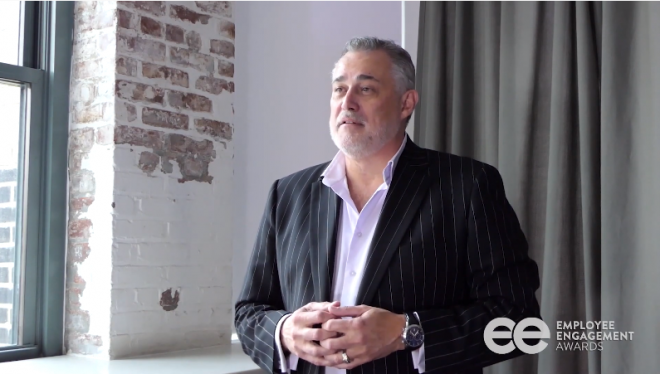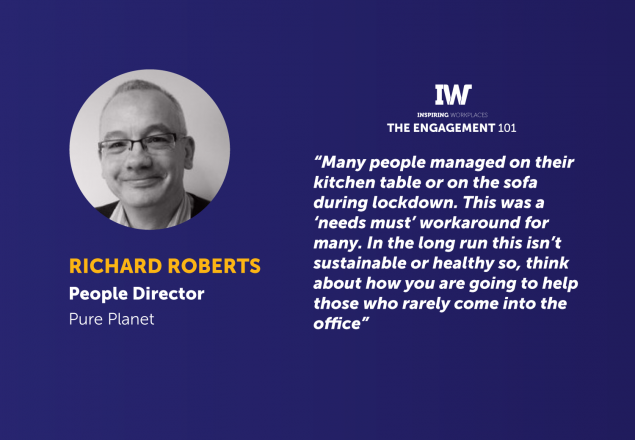
19th February 2024
Looking to hire based on cultural alignment? Here’s what to look for

Cultural fit in the workplace is crucial for employee satisfaction and retention. It involves aligning employees’ beliefs and behaviors with a company’s core values and culture. A survey revealed that 77% of job seekers consider a company’s culture before applying, emphasizing its importance. To hire for cultural fit, companies should define their culture, convey it in hiring materials, train staff to discuss it genuinely, offer candidates an immersive look, and factor in diversity, equity, and inclusion. Prioritizing cultural fit enhances job satisfaction, engagement, and retention, ultimately leading to a more harmonious and productive work environment.
From the original article written by Skye Schooley and published in Business News Daily:
Cultural alignment can be elusive but unmistakable in its absence. Picture a company founder advocating for open-office collaboration while employing introverts craving privacy. Consider an ambitious employee trapped in a company devoid of growth opportunities or training programs.
At its essence, cultural fit means employees’ values and actions harmonize with their employer’s core beliefs and atmosphere. Prioritizing candidates who complement your company culture is vital, underscoring its significance in the recruitment process.
Understanding Company Culture
Your company culture encompasses diverse organizational elements: mission statements, workplace dynamics, management approaches, and employee conduct. It’s distinct to your organization and influenced by both leadership and staff. Strategically, cultivating a positive company culture attracts desirable talent.
Significance of Cultural Fit
Company culture is pivotal to job seekers. Glassdoor’s survey reveals that 77% of respondents consider an organization’s culture before applying, with 73% prioritizing values alignment. Candidates inherently gauge their compatibility with your culture.
Employers recognize the value of cultural fit. Studies show that well-aligned employees exhibit higher job satisfaction, engagement, and productivity. Lauren Kolbe emphasizes this, stating, “We can teach a job, not our operational ethos.” Cultural misalignment disrupts harmony, potentially outweighing skills.
Moreover, cultural fit influences employee retention. Well-matched individuals tend to stay longer, curbing turnover costs, which can reach 1.5 to 2 times an employee’s annual salary.
How to Assess Cultural Fit
Identifying whether a job applicant aligns with your company culture can be challenging without established procedures. When recruiting, follow these five steps to determine which candidates best fit your company culture.
1. Define Your Company Culture
Begin by clearly defining your company culture, articulating its values, norms, and practices. Rebecca Barnes-Hogg, CEO of YOLO Insights, advises her clients to list the top three or four behaviors crucial for success, translating culture into daily operations.
2. Convey Your Culture in Hiring Materials
Express your company culture consistently across all communication channels, especially in job postings. Ian Cluroe from the Center for Internet Security suggests highlighting desired qualities alongside experience requirements, reflecting your culture.
3. Train Your Hiring Staff on Cultural Discussions
Ensure interviewers understand and incorporate your company culture throughout the hiring process. Merely asking candidates if they fit in isn’t enough; training helps interviewers discuss culture authentically.
Authentic Discussions on Culture Mark Babbitt of YouTern stresses the importance of genuine cultural discussions. Candidates often prepare canned answers, necessitating sincere dialogue to accurately assess cultural fit. Providing training ensures honest conversations.
4. Offer a firsthand glimpse into your company culture for job candidates
To effectively gauge cultural compatibility with potential hires, Babbitt suggests immersing them in your workplace environment. Tour the office, introduce them to key team members, and showcase where the real work takes place. Upon returning to the interview room, pose a single question: “What were your impressions as we explored the office today?” Babbitt emphasizes that a genuine, specific response is indicative of a potential culture fit.
Furthermore, you can evaluate candidates’ cultural alignment by administering personality assessments such as the Myers-Briggs Type Indicator or the DiSC assessment. Additionally, facilitate interactions between candidates and team members from various departments within your organization.
5. Integrate DEI considerations into your recruitment process
When screening for cultural compatibility, it’s crucial to prioritize diversity, equity, and inclusion (DEI) initiatives. Fostering a culture that champions workplace diversity benefits both employers and employees alike. Develop an inclusive recruitment strategy that affords every candidate equal opportunity.
Pavneet Uppal, managing partner of the Phoenix office of Fisher Phillips, advises against conflating personal affinities with cultural fit. Homogeneous hiring practices can stifle creativity and undermine a company’s competitiveness. Uppal warns that focusing solely on shared backgrounds or experiences may result in discriminatory hiring practices, which can have legal repercussions. Refusing to hire based on alleged cultural misalignment does not shield employers from legal liability. Uppal underscores that inquiries into personal matters, such as age, citizenship status, or ethnic background, are never justified in the name of cultural fit.
Ultimately, the objective is to recruit top-tier candidates whose skills and attributes align with the organization’s core values. Cluroe emphasizes that this goal is attainable when companies cultivate a culture grounded in positive values that accommodate a diverse array of individuals.
Read the original article here: Hiring for Cultural Fit? Here’s What to Look For
Our new consulting division can help you build an inspiring culture of Belief and Belonging in your organization.
Find out more here





